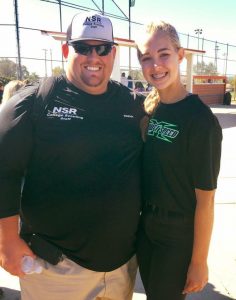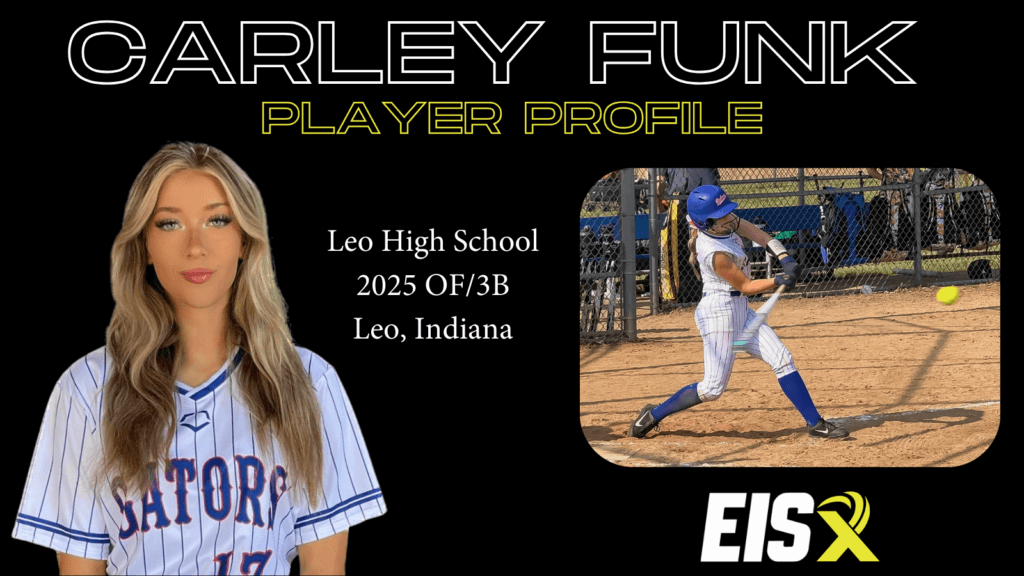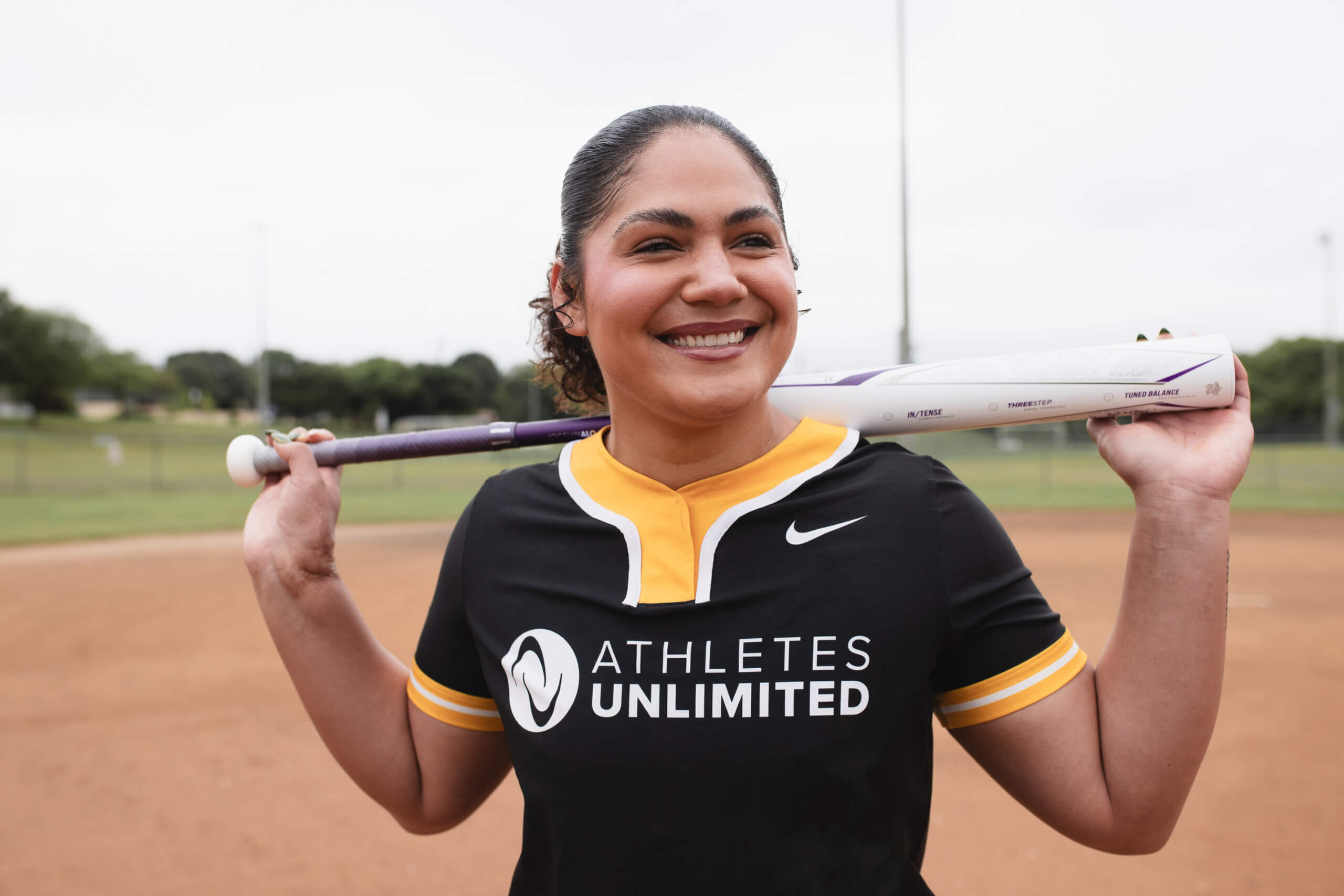
Navigating the tricky waters of the recruiting process can be a stressful and challenging endeavor to say the least and today we feature valuable insights from a full-time recruiting scout, Robby Wilson, who gives his advice of what to do–and not do–to ensure success.
We’ve known Robby on a professional and personal level for several years and have seen how he’s impacted the lives of hundreds of athletes who’ve gone on to play at the next level thanks to his help and guidance.
Coach Wilson is a former two-sport collegiate athlete who graduated with a degree in Exercise Science and Dietetics and later went on to become a collegiate Strength Coach while owning a gym and working with sport-specific athletes.
He is now the National Director of Softball Scouting for National Scouting Report (NSR) as well as the State Director for Arkansas and surrounding states and has helped hundreds of softball players navigate the tricky recruiting waters to get scholarships and the opportunities to play at the collegiate level.
Here he talks about 5 things you want to avoid doing that could derail your efforts in finding the right college program for you, the student-athlete.
*****
“You have to be playing in the biggest showcases.”
“You should be playing in qualifiers not showcases.”
“You’re in the wrong organization.”
“You need a skills video.”
…we’ve all heard it, and it never stops.
There’s no shortage to the number of things people think is needed for the recruiting process to be successful for an athlete. However, what worked 10 years ago or even five years ago, simply isn’t what works now.
Now, with the growing popularity of softball, the number of kids, parents, teams, coaches, videographers, tournament directors, and even “recruiting companies” has sky-rocketed alongside of it.
That’s where the issue is…with more people involved, that means a larger number of different opinions.
Dealing with thousands of prospects a month (as well as coaches at every level), that’s what this piece is about:
The Top 5 Mistakes Recruits Make
1. Waiting too long to get started
The recruiting process is supposed to be fun and exciting, not stressful and time sensitive. Although “early recruiting” has gotten a bad rap in recent years (without slowing it down though), there’s no denying that “the early bird gets the worm.”

“When is the right time for a prospect to get started in the recruiting process?”
That’s a question I get asked at least five times a day. Truth is, timing is everything. Every prospect is different and therefore the right timing for them, will be different. As a general rule: 6th or 7th grade is a great time to start having the conversation with an athlete about the possibility of college ball…to get her mind thinking in the right direction.
The 7th or 8th grade is the right time, generally, to get them “started in the process,” assuming all necessary aspects line up.
However, that is assuming the prospect is gifted physically, playing for the right team, playing in high level events, etc.
Now (in my opinion) comes the important part and deciding factors on whether it’s her time or not: is she mentally strong? Is she mentally mature? Is she responsible? How are her time management skills?
Just because a 7th or 8th grade athlete is gifted physically, performs at the top of her class and at all of the right events, DOES NOT mean it’s time for her to be entering the recruiting process.
In my years of experience, if an athlete is getting started sometime between 7th to 9th grade, she will typically end up just fine. A 9th grader may have less options available than that of a 7th grader, but the right time is the right time for each individual athlete.
Another aspect of starting early most don’t consider is taking their standardized tests (ACT or SAT).
While the SAT is unlimited, the ACT is limited to 12 times. However, it’s best to be taking one early on the process to get a baseline to see where the athlete compares with the “sliding scale” and eligibility requirements, to get rid of the fear of the test, andto get used to the format of the test.
On the other hand, waiting too long to get started can be the most stressful thing not only on an athlete, but on the parents.
Sophomores and juniors, even seniors, will no doubt, still have “options.” But the number of options will be considerably less and the athlete has less time to make it happen and therefore less room for mistakes and more necessity for sacrifices.
At that point, everything counts. Every tournament/showcase, every camp, every email, every coach contact, it all counts. And one mistake could push the recruit back on the coach’s list because, by this time, he/she simply doesn’t have time.
At the end of the day, waiting too long to get started can not only handicap the prospect’s recruiting…it can stress her or the parents out to the point of burnout and/or waiving the white flag and giving up.
On the other hand, starting an athlete in the process prior to her mentally/psychologically being ready, can be detrimental to her overall as a kid and athlete.
The key is timing, and the right timing can truly only be determined by someone who assesses this all the time with the guidance of the athlete’s parents.
2. Limiting options way too quickly
This one “irks” me, really. Probably 99% of softball prospects want to play for some Power 5 school they saw on TV and about 1% actually can… that’s not a shock.
The shocker comes in with the other aspects of which an athlete typically limits herself from the get-go and therefore, can’t find success in the process. Some of those methods of limitation are:
a. I want to play D1
b. I want to stay close to home
c. I want to major in underwater basket weaving (or some unique major of which they saw on television and sounded really cool)
d. I don’t want to go where it’s cold/I don’t want to go where it’s too hot/humid.
e. I want to stay in-state for in-state tuition
f. I watched ABC university play and the coach seemed really cool
g. I am (insert religion here) so I don’t want to go to any religious schools other than (insert religion)
h. I want a high academic school like the Ivy Leagues
It never fails.
With as many prospects as I’ve worked with over the years, I’ve heard it all; I even had an athlete once tell me she only wanted to target colleges that were directly on a beach so she could walk to the beach.
Those listed above is by no means a complete list of the reasons I hear, they are simply the ones I hear most frequently!
Corresponding to the “wants” above (a-h), the truth is that:
a. Only 1.6% of girls will play NCAA D1 athletics
b. A recent survey showed 78% of college sophomores surveyed said they don’t even think about the proximity to home after the first semester of their freshman year.
c. An estimated 75% of college students change their major once arriving at college
d. It’s been sunny in the snowiest parts of the U.S. and it’s been freezing in the hottest parts of the U.S.
e. In-state tuition is great, don’t get me wrong. But what if the in -tate college is a private college and in-state scholarships are irrelevant? Did you know that a lot of colleges nationwide have test requirements that, if met, would qualify you for in-state tuition? Some schools allow stacking while others don’t. There are a myriad of ways to get tuition covered. Don’t fall for whatever “in-state” rumors you’ve been told.

f. While the Coach is an important part of the decision, you never want to pursue and recruit a school/program based on the coach only. Coaches leave, change school, get released, heck, coaches change. Don’t think because you watched a coach on TV or at a game and you liked their “temperament” that it’s absolutely how they always are. I know a lot of coaches that are upbeat and exciting during games…but if you are late to practice or mess up, you will see a different side of them! It’s not to say it’s wrong, it’s just that you can’t “judge a book by its cover.”
g. The big difference between a religiously-affiliated college and a public university is that, because the religious school is private, the separation of church and state does not apply. It might be that a religious school requires so many credits of “religious” courses. You might find that there is an emphasis on making time to attend religious services. However, this does not mean that the school can force beliefs on you. Regardless of the level of affiliation, you should be welcome. Your grades will not suffer because you do not adhere to the school’s religion. In fact, by bringing a different viewpoint into the classrooms, you might enhance everyone’s understanding of the world. The biggest thing with exploring this reason is “do not assume.” Get the facts from the school or the coach (not online), and find out what the requirements and “norms” are for that particular, religiously-affiliated school.
h. This one gets me flustered. The words “high academic” are so misunderstood, it’s unreal. When the general public thinks of the words “high academic,” naturally they think of Ivy League programs and similar. A few things to ponder: if you want to major in underwater basket weaving and there’s a college that is “Top 10 nationally” for your particular major, but it’s not considered a “high academic college” why would you say “no” to that school? It’s ranked Top 10 nationally in your chosen major! Also, if you say you want “a high academic institution,” your current academics better reflect that you can not only be admitted there, but survive there. You want to go to the Ivy League schools, but you have a 3.25 GPA and a 22 ACT score? Those academics aren’t indicative of an Ivy League student-athlete. The right fit academically can be tricky to find and 99% of people are using the wrong factors to find it.
3. Failing in Consistency
This is one likely one of the biggest mistakes, but is simple to comprehend.
Come May/June of each year, every softball athlete who thinks they are “in the recruiting process” will begin their barrage of sending random emails to a ton of college softball coaches all the time with schedules and some with videos, hoping the coaches read it and are coming to watch them at one of those showcases or tournaments.
The prospect will do this infrequently at best, over the Summer. Come August, school is about to start back so naturally she let’s the communications fall behind.
As Fall showcasing resumes in late September, the prospect gets back to it… only she doesn’t realize that she’s lost 75% of the options she did have because she stopped communicating, because she didn’t follow through with the instructions the coach asked her to do (camp, call, etc.), or because she was pigeon-holing herself.
Basically, she’s starting the process over. Come mid-November or December, the same thing happens.

She starts “camping,” but because of Christmas break at school, family visiting, etc., her college coach communication falls to the wayside. She has a few tries of getting back it into in late January, but then Spring or High School season starts and she goes M.I.A.
The point here is simple: there’s a one-in-a-million chance that the “college coach” gets your first email, goes through it, and says “right now, right here, I’m going to offer this kid a full tuition offer and be done with it.”
You don’t just skip from the start of Step One of the process all the way to the end of Step Four. It’s called “the recruiting PROCESS,” not “the recruiting DAY.”
You will need to demonstrate that you’re academically and athletically qualified, the coach will need to put eyes on you one way or another to confirm you are what he/she needs and he or she will need to have time to get to know you and your family to see if you all are a fit for the college program. And the coach will need to see you demonstrate competency, consistency, and maturity in maintaining communication and maintaining your push to sell yourself to the coach.
4. Using a “cookie-cutter” approach
College softball coaches are human, right?
So naturally, they’re going to have likes/dislikes, they’re going to have a “type,” and they’re going to have preferences. That being said, there’s much more to finding the right coach/program than just distance and division.

It’s common knowledge now that what a lot of people are initially doing is the “email 50 college coaches” approach with a standard email containing a recruiting sheet and a video.
A lot of times it’s “email 50 NEW college coaches.” This ends up being more for the club organization’s branding than for the individual prospect and in consideration of #3 above (consistency), imagine you email 50 new college coaches, three times in a month.
Now there’s 150 college coaches that you’ve emailed in that month which is great… except, now how do you maintain consistency with those coaches and maintain communication?
You can’t.
And out of those 150, there’s likely 30-40 that fit your criteria, and out of those 40 it’s likely there are 20 that you fit that coach’s type and out of those 20 it’s likely 5-8 that have a need matching you.
Point blank, this is a lot of work in what is known as the “shotgun approach” and is the silliest thing I’ve ever heard of in recruiting. Did a similar approach work 10 years ago, maybe even 5-6 years ago? Yes sometimes… but not now.
If it’s not that, it’s one of these online things or “online recruiting websites” giving these generic blogs, generic tutorials, and somehow hope you will believe it’ll produce extraordinary results. False.
In addition, what is the athlete going to do when you ask her to send 50 new emails? She’s going to create an email template and copy and paste the emails. Even though she knows she shouldn’t, it’s done.
The prospect knows little about the school and coach, at best. She is emailing her name and info, profile and video and “I’m interested in your school and program” with no reasons of interest or details involved.
These cookie-cutter approaches NEVER work. Is there luck involved sometimes and maybe it sparks some interest? Sure. But if communication is one of the biggest keys to college softball recruiting success, isn’t a key to communication being the mode, method and frequency to which an individual prefers?
So in essence, these “cookie-cutter” recommendations won’t work and the key to successful communication with college softball coaches ends up being:
a. What mode of communication do they prefer?
b. What type works? Long email, short or straight to the point email, etc. Do they prefer to chat
with someone they trust first? Do they want to hear from the athlete first?
c. What frequency? Weekly email? After games? Monthly, summarizing your month’s results?
One thing I can tell you from dealing with 600+ college softball coaches a week is this: Every coach has his or her own preferences on how he/she wants to be communicated with, who they want communicating, and how often.
We all have our “buying signs” and “buying triggers.” And that’s essentially what you’re trying to get the college softball coach to do, is “buy” you, to buy your talent, to buy the overall package.
By buying meaning offering a scholarship in exchange for your athletic contributions. No more “shotgun approaches!” Instead, use effectively the specificity of the Who, What, When, Where, Why, and How.
5. Not having expert advice & help
Obviously, I could go on for days upon days on this one, but I won’t. Instead, I’m going to point out the obvious here.
Inevitably, the college coach wants the athlete, herself, to handle the large majority of her business. No doubt. But how does she know what to do, when to do it, what the right thing is, what the right fit is, etc.?

I wouldn’t perform open-heart surgery on myself. I also wouldn’t go ask my mechanic who works on my cars full-time but has been to the hospital a few times to do it either. I would go to a cardiac surgeon (aka, it’s about the specificity, again).
Using someone who’s skilled in the process is a huge advantage, be it a knowledgable and successful club coach, former college coach or a recruiting scout.
Let me define and detail more what a recruiting scout is and does so you may know if that’s an option you’d like to consider and/or pursue.
As a recruiting scout, I’m in it 24/7 and there are very few college programs across the nation that I’m not up to date with what they need for each graduation year/position, size, speed, preferences, academics, etc.
Regardless of the year, position, academics, or size of an athlete you bring me, it doesn’t take me but a few minutes to determine what kind of options are out there for the athlete and the next steps in letting those coaches know about an athlete that fits what they need along with all her athletic and academic info, video, etc.
Not only that, but 99% of prospects are being advised or have deduced themselves, incorrectly, on how the whole process works and actions like calling coaches when they’ve not asked you to or requesting from each coach you contact to do an unofficial visit when it’s not appropriate.
It comes down to this: what did you do to EARN that phone call or visit from the coach? Trust me, if the coach is interested, he will ask about you calling him/her and/or visiting!
Here is a list of things that make it easy as a scout to keep the process fun and exciting for prospects as well as make sure they receive offers and are successful in the process:
a. Finding the right fit is easier because of the scout’s experience with that school/coach, as well as not wasting time with schools above your level of play, in addition to the fact that they may be done recruiting your class and/or position.
b. Knowing the next steps are very particular for each coach, and how to navigate those steps and when.
c. Knowing what to say in the email, knowing how to navigate the phone call with that particular coach and what questions they’ll ask, knowing how to handle the visit and what questions to ask/not to ask. Even to the point of knowing if that particular coach like game footage or skills footage…
d. Ensuring the athlete stays on the right path for being a qualifier via GPA, core course requirements, ACT/SAT needs, etc. in addition to ensuring the athlete and/or family follows the appropriate rules via NCAA, NAIA and NJCAA.
e. The most obvious is we know the communication and contact guidelines. You email the coach, but then he or she is very limited on what he/she can and can’t say back and how they move forward, but it’s a lot easier for the college coach to give the scout instructions for the athlete, and to pass that on to the athlete.
f. Having “ease of access” is key for the college softball coach since they’re really wearing a million hats, not just their “coach hat.” Therefore, whoever is doing the advising for you, being available 24/7 and by every method of communication possible to the college softball coach is critical.
g. If I talk to 100 college softball coaches tomorrow, here’s a typical breakdown of how it goes: 40-50 will be text, 10-15 calls, 25 email, 10-15 Facebook/Instagram message.
h. The times could vary from 5am until 1am, you just never know!
Just as the college coaches and the player rankings changes, the recruiting process changes annually too.
And you can’t expect to win today’s lottery reading last week’s numbers.
*****
If you’d like to learn more about the recruiting process, you can reach Robby Wilson by email: [email protected] or by checking out the NSR site.











